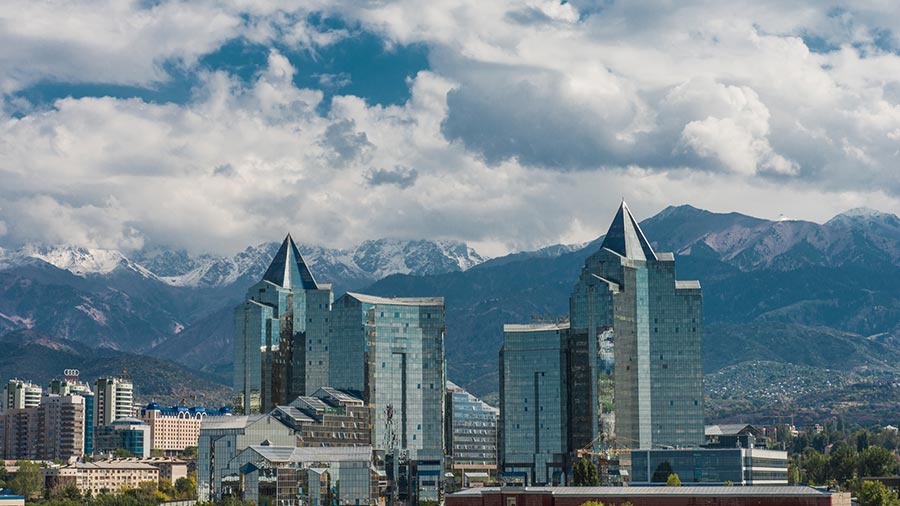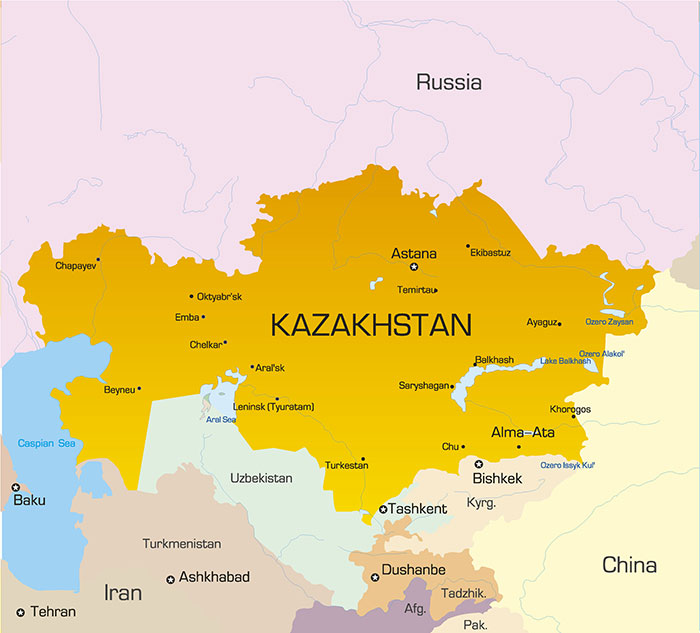Almaty Responsible For 31.5% Of Kazakhstan’s Entire Retail Trade

There are significant ecommerce opportunities in one of Central Asia’s largest cities, while increasing financial ties with Urumqi will see both develop further as investment bases for Central Asia.
Kazakhstan’s Ministry of Trade has released data showing that Almaty has the largest single share of retail trade of Kazakhstan at 31.5%.
Bakhyt Sultanov, the Deputy Prime Minister for the Ministry of Trade and Integration stated the figures during a meeting in Almaty discussing trade, consumer prices, food products and compensation for losses incurred during January riots.
Almaty (also known as Alma-Ata) is the largest commercial, financial and cultural center of Kazakhstan, where about a third of Kazakh businesses are registered.
According to Sultanov, trade is Almaty’s main economy, with retail trade exceeding 4.2 trillion billion tenge (US$9.8 billion) last year, a growth rate of 13.5% over 2020.
He also noted that the January riots have negatively impacted the work of some business entities, especially in the trade sector. The Kazakh government commission has approved a mechanism for compensation of damage to the affected businessmen, in which several amendments are to be made.
These include compensation for damages caused to business according to a simplified calculation with payments of up to 10 million tenge (US$23,000) for all categories of damage, as well as to apply a simplified mechanism for the “equipment” category and compensate lawyers’ fees.
“This will reduce the period for consideration of applications from one month to two weeks and significantly speed up the procedure for compensating for damage to business,” Dosayev said. Almaty based law firms are also set for a client bonus in renewed processing work.
The issue of stabilizing prices for socially important food products was also discussed. To stabilize prices for socially significant food products, within the framework of “revolving” loans, 11 billion tenge (US$26,000) was allocated from the local budget to fix prices for vegetables, meat products, eggs and groceries. The allocation of loans to large producers of ‘social bread’ [a variety of bread sold at a fixed lower cost], dairy products and sunflower oil are also being worked out.
The Almaty city administration has also stated that it is considering the creation of business and commercial mini-hubs by allocating concessional financing and land plots within the city for the construction of easily erectable temporary storage warehouses. These will reduce the dependence of convenience stores on resellers, and relieve owners of small retail outlets from the need to purchase on their own in large wholesale markets. In general, this should have a positive impact on the price level in smaller Mom & Pop style local shops.
Sultanov instructed the Almaty Trade Committee to continue monitoring and analyzing prices, take measures to increase the “turnover scheme” as part of the stabilization of prices for socially significant food products. He also instructed to intensify the activities of regional commissions to investigate intermediary schemes along the entire food pricing chain, to root out price gouging and unfair business practices.
There are also fuel concessions, an issue related to the January unrest. The Kazakh government announced in late January that it was restoring some price caps on liquefied petroleum gas, reducing overall costs.
Many Kazakhs have converted their cars to run on LPG, which is cheaper than gasoline as a vehicle fuel in Kazakhstan because of price caps. But the government argued that the low price was unsustainable and lifted the discounts on January 1, resulting in demonstrations throughout the country.
These new measures are designed to pacify the Kazakh population at large and help maintain civil order. They have also helped to start the process of economic reform in Kazakhstan, which may in time view the January unrest of a key turning point in pointing the country to a new open, more transparent direction.

Almaty is the largest city in Kazakhstan with a population of about 2 million and a local GDP per capita of about US$9,250 – equivalent to Chinese consumers in Liaoning and Sichuan, nearly double that of the average Indian consumers in Delhi and Mumbai, and on a par on those in Bulgaria and Brazil.
To the east of Almaty, connected by road, rail and air, is Urumqi, 869km away across the Tian Shan mountain ranges in China’s Xinjiang Province. Urumqi is the wealthiest city in Central Asia and its second most populous after Kabul. Much of the China-Kazakh trade passes a little further to the north, at the Khorgos Port in Kazakhstan, 306km on from Almaty. Nonetheless, trade ties between Almaty and Urumqi are strong and will see a combined effort in linking resources to being both trade, financial and related opportunities into Central Asia.
Related Reading
About Us
Chris Devonshire-Ellis is the Chairman of Dezan Shira & Associates. The firm assists British and Foreign Investment into Asia and has 28 offices throughout China, India, the ASEAN nations and Russia. For strategic and business intelligence concerning China’s Belt & Road Initiative please email silkroad@dezshira.com or visit us at www.dezshira.com





